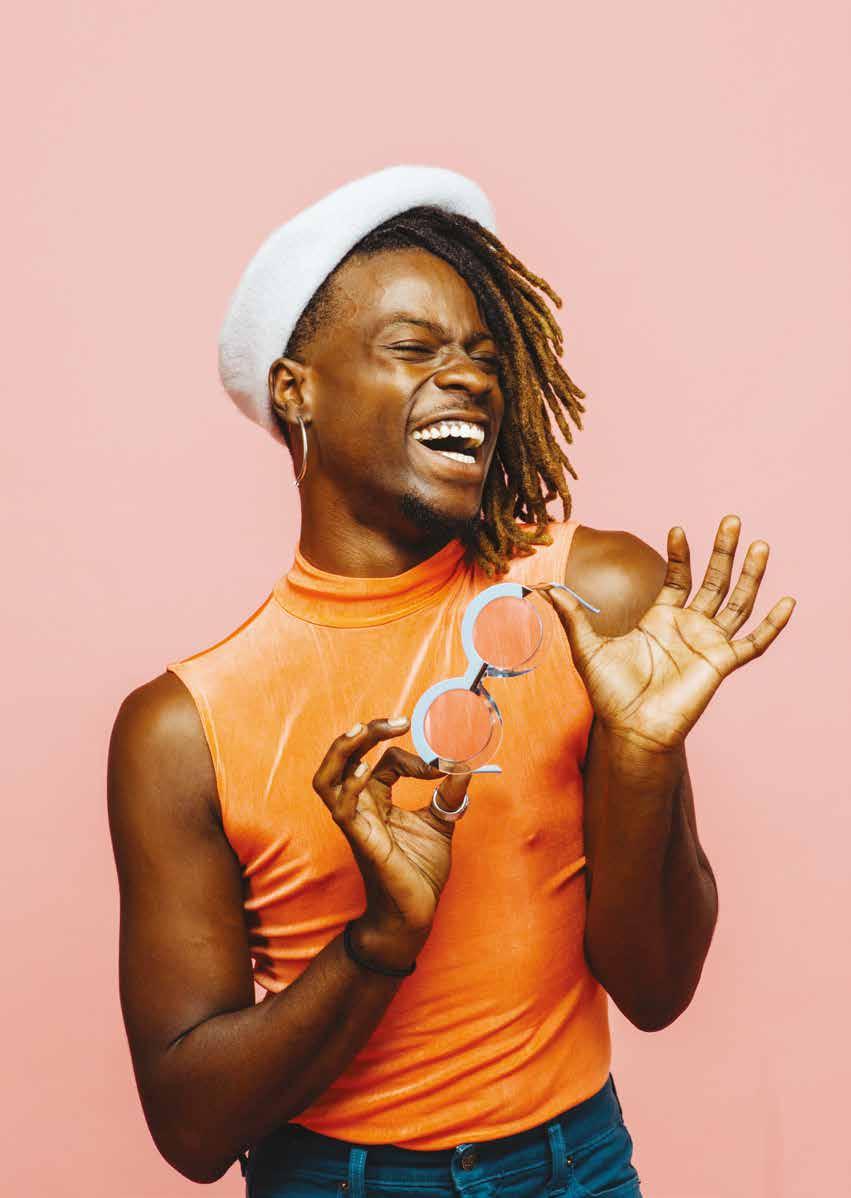
2 minute read
Reviews
Suppose We by Geoff Nelder Reviewed by Jake Cudsi
The first title in author Geoff Nelder’s The Flying Crooked series, Suppose We introduces readers to the titular spacecraft’s voyage into the Kepler-20 system. Suppose We is the latest iteration of Nelder’s distinctive brand of science fiction. This scifi novella centres on the Suppose We crew’s efforts to find a habitable planet, but the book’s conceit lies in their finding an advanced alien species completely unperturbed by the crew’s crash-landing on their Kepler-20h home.
Advertisement
Gaston Poirer, our protagonist and a vegan himself, comprises a quarter of the ship’s crew. The Suppose We craft has been travelling for roughly 1000 years, with the crew suspended for the vast majority of that in an age-defying hibernation chamber. Thanks to the hibernation chambers, the crew are practically still in their mid-20s, despite Gaston celebrating what was actually his 1087th birthday in the void between chapters one and two. When Suppose We crashes into the hyper-advanced Kepler 20h planet, a world of adventure and confusion envelopes the crew.
Those readers unfamiliar with sci-fi may find Nelder’s exuberant storytelling hampered by convoluted technicalities. A couple of pages in and the text refers to ‘time-space decoherences’, ‘quantum mech probes’ and ‘hiber-wax’. Uninitiated readers might get a little bogged down in an esoteric soup of sci-fi buzzwords. Here Nelder’s unfettered, unshrinking imagination works against the cohesiveness of the story for first-timers to the sci-fi genre.
Nevertheless it’s an immersive story, one Nelder expertly weaves to explore morality, ethics and veganism on a planet not too dissimilar from our own.
Vivi the Supervegan by Tina Newman Reviewed by Kaya Gromocki
I was immediately struck by the amazing illustrations in Vivi the Supervegan. Fruit and vegetables of all shapes and colours dance across the page – if any book is going to make healthy eating enticing to children, surely it’s this one. The opening page shows Vivi and her pig friend, Button, holding eye contact with each other. They appear to have a connection that transcends the usual power dynamic between human and non-human animal. As you read on it becomes clear that this is because Vivi can speak to other animals. This isn’t her only superpower: she also has the ability to show others the suffering they have caused to animals. The concept of suffering is dealt with sensitively – the illustrations remain neutral, and no triggering language is used.
When Vivi rescues a piglet who has fallen from a truck, we’re told that Vivi knows where the truck was going, and that she knows the piglet won’t see their mummy again. These pages deal with the reality of animal farming while also giving parents and guardians the opportunity to add as much context as they see fit.
The story also presents positive solutions, such as Button the piglet living out his life in the safety of an animal sanctuary. Vivi’s adventures conclude with the birth of her baby sister, who has superpowers too. This optimistic ending sends a message to vegan children who may feel isolated in their beliefs: that others will be willing to support them on their journey to create a better world.














